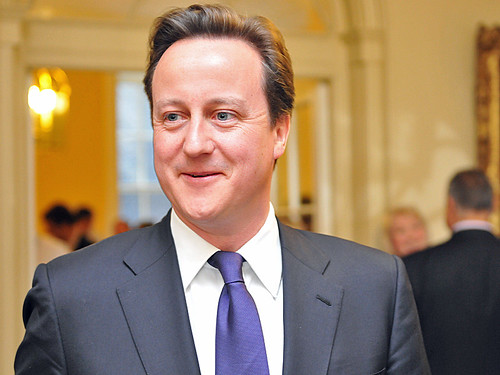4th April 2012
Prime Minister’s Easter message

On 3 April, I attended the Prime Minister’s reception at 10 Downing Street to celebrate Easter, something that David Cameron introduced last year. British Christian representatives were there from many denominations – including Anglican, Catholic, Coptic, Orthodox, Salvation Army, Methodist – as well as participants of other faiths. And Number 10 echoed to the sound of the boys of the choir of Westminster Abbey.
The Prime Minister delivered “three messages, an appeal, and two challenges”.
His first message was his feeling that we were at a moment of Christian revival in Britain. The Pope’s visit to the UK in 2010, and the successful return visit of a government delegation led by Baroness Warsi earlier this year, were symptoms of this. Christians were becoming more engaged in public issues, there was greater confidence, and more public expression. This was positive, and related to his further two messages. That Christian engagement in society should be based on key Christian values – he cited as an example ‘do to others as I would have done to me’ – which while not exclusive to Christianity could be shared across society. And, thirdly, he welcomed this engagement because of its importance to Britain’s institutions.
The challenges were to urge Christians to commit energetically to the Big Society, encouraging voluntary and other groups to apply for the funding available. And the second was to ensure that the message gets out that Britain will do all that it can to support and protect the minorities in the Middle East during this period of change and political turbulence, particularly through development programmes on the back of Britain’s expanding overseas development funding.
And the Appeal? The Prime Minister recognised that not everyone would be in agreement with the consultation underway on same-sex marriage. His hope was that debate could be kept at a courteous, passionate, but polite level. Faith engaging with reason, in other words.
Happy Easter to you all!
I think that part of the problem with the debate is that the same-sex marriage proposals are against both Faith and Reason. Faith and Reason are on the same side of the debate. On the other side are the new gods of equality, diversity and tolerance (or at least some people’s understanding of these things).
The widespread acceptance of contraception has broken the link between marriage and children for many in our society, and once you take children out of the equation you can see how marriage can just become an inward-looking, convenient contract between two consenting adults. If marriage is only about two people sharing sexual intimacy with no danger of children, then, for some, it is a small step to ask why the two adults need to be a man and a woman. Why not two men, or two women?
If Parliament says it is all right for two men to marry, or two women, it is a short step from there to ask what is wrong with marriages of two men and a woman, two women and three men? I wish this were a figment of my imagination, but it was already being floated on the BBC news website before Christmas. If we ever got to that stage, the wraps would finally be taken off our society and it would be exposed as a place where adults live out their selfish fantasies with not a care for the proper upbringing of children. Same-sex marriages are a bridge to that. That is another reason why they should be opposed. And there are worse things down the pipeline already publicly aired:, such as sibling marriages, and would you believe it, sex between adults and children!
This controversy is not about the rights of homosexual people. It is about forces in our society which wish to dismantle the place God has in our culture, laws and way of life.